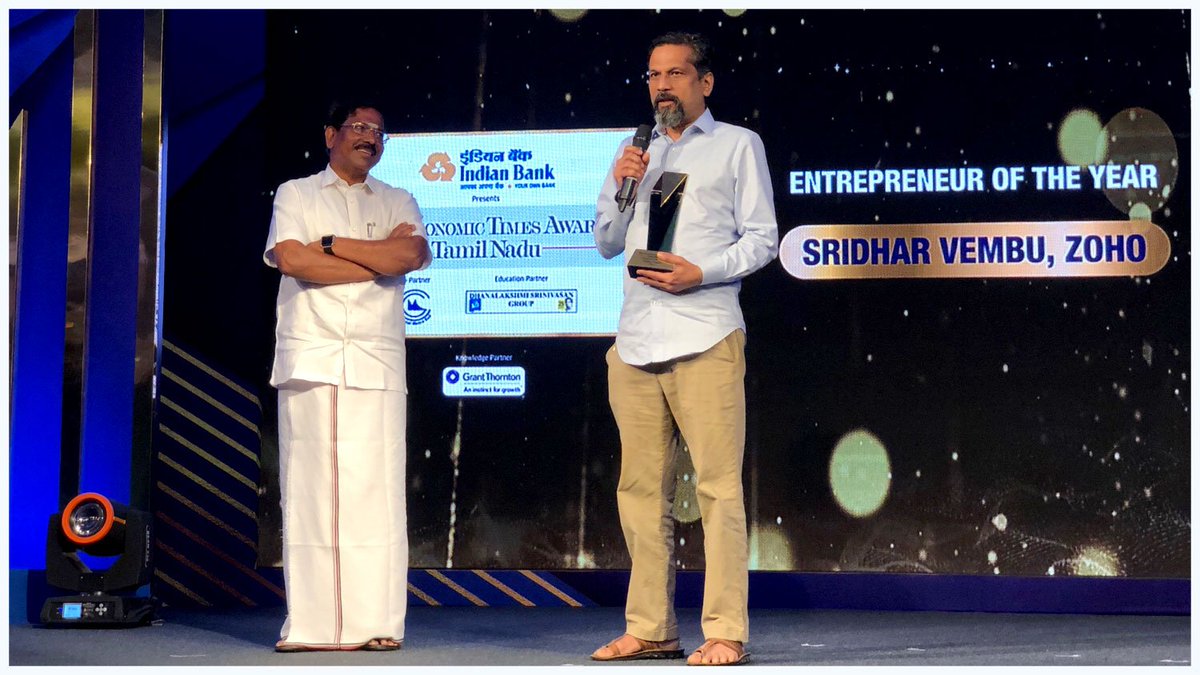Zoho: The Quiet Giant That Built Itself
In the 1990s, the internet was a promise, not a way of life. Silicon Valley was buzzing with the early energy of the dot-com era. Amazon was still just an online bookstore. Apple hadn’t launched the iPhone. PayPal was an idea that many thought wouldn’t last.
Far away from all this noise, in Chennai, a small group of engineers sat in a modest office, working quietly on something they hoped would last. There were no billboards, no splashy funding announcements, no headlines. Just a group of people trying to build good software.
That small group would go on to build Zoho.
This is not the story of a unicorn that grew overnight. It is the story of a company that chose patience over speed, conviction over convention, and freedom over funding.

A Beginning Few Noticed
Zoho’s story starts in 1996 when Sridhar, Kumar and Sekar Vembu teamed up with Tony Thomas to create AdventNet. It was an unlikely bet. Internet infrastructure in India was unreliable and funding was scarce. Most ambitious founders were trying to make it in Silicon Valley.
Sridhar Vembu, who had studied at IIT Madras and Princeton and worked at Qualcomm, could easily have done the same. Instead, he came back. He believed in building from India, for the world.
Their first product, WebNMS, wasn’t flashy. It was a network management tool that solved a real problem. Companies like Cisco took notice. By 2000, AdventNet was making more than 10 million dollars in annual revenue. For a bootstrapped company from Chennai, this was no small feat.
But the turning point came not with a product, but with a decision.

The Power of Saying No
In 2000, AdventNet received a funding offer of five million dollars. For many startups, this would have been the moment to accelerate. For Sridhar, it was the moment to pause.
He believed that outside money would mean losing control of the company’s direction. He didn’t want to be told what to build or how fast to grow. So he said no.
A few months later, the dot-com bubble burst. Hundreds of VC-backed startups collapsed almost overnight. AdventNet survived, not because it had deep pockets, but because it didn’t need them.
That decision to stay independent became the foundation on which everything else was built.
Betting on the Cloud Before the World Did
As the dust from the crash settled, the company began looking ahead. In 2005, it launched Zoho Writer, a cloud-based word processor. Soon after came Zoho Creator. At the time, very few companies were thinking about cloud software. Sridhar and his team saw the shift early.
Businesses didn’t want expensive, complex software anymore. They wanted simple, affordable tools that worked from anywhere.
Four years later, in 2009, AdventNet officially became Zoho. What began as a single product slowly grew into a full suite of business tools, from CRM to finance, HR, marketing and analytics. All of it was built quietly, one step at a time.
What Makes Zoho Work

What truly sets Zoho apart is not its product catalog, but its culture.
Zoho has never run ads on its free tools. It doesn’t sell user data. It builds and controls its own infrastructure. It has remained private for nearly three decades, despite plenty of opportunities to go public.
One of its most remarkable initiatives is Zoho Schools of Learning. Started in 2005, it brings in young people from rural and underprivileged backgrounds and trains them in programming, design and business. Many of them don’t have college degrees. Today, about 15 percent of Zoho’s workforce comes from this program.
Sridhar has often said that talent is everywhere but opportunity is not. Zoho Schools is a quiet but powerful way of changing that.
Doing Things the Right Way
Another radical agenda on Sridhar Vembu’s list was to decentralize his company’s workings. Tired of the city life, Vembu himself moved to a village in Tamil Nadu during 2020, teaching Math and Science to the students along with environmental morals. As the Covid-19 Pandemic forced India and the world to shut down its cities, Vembu encouraged his engineers and developers to work from their hometowns.
“We want to prove that world-class technology can come from a small village in Tamil Nadu as much as from Silicon Valley.”
— Sridhar Vembu
Vembu’s ideal is to reignite communal village living, a combination of community and harmony with modern conveniences and technology. The CEO plans to adopt similar models in Japan, Mexico, and Texas.
A Global Company Built Quietly
Today, Zoho has more than 100 million users in over 150 countries. It operates 18 data centers across the world. Its product suite includes more than 50 business apps, all built in-house.
The company’s revenues are estimated to be well above one billion dollars a year, making it one of the largest bootstrapped software companies in the world.
And yet, Zoho remains remarkably low profile. There are no big product launches, no splashy billboards, no founder on magazine covers every month. Sridhar still spends much of his time in Tenkasi.

